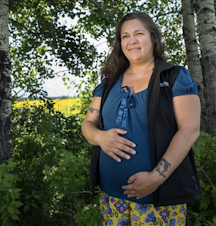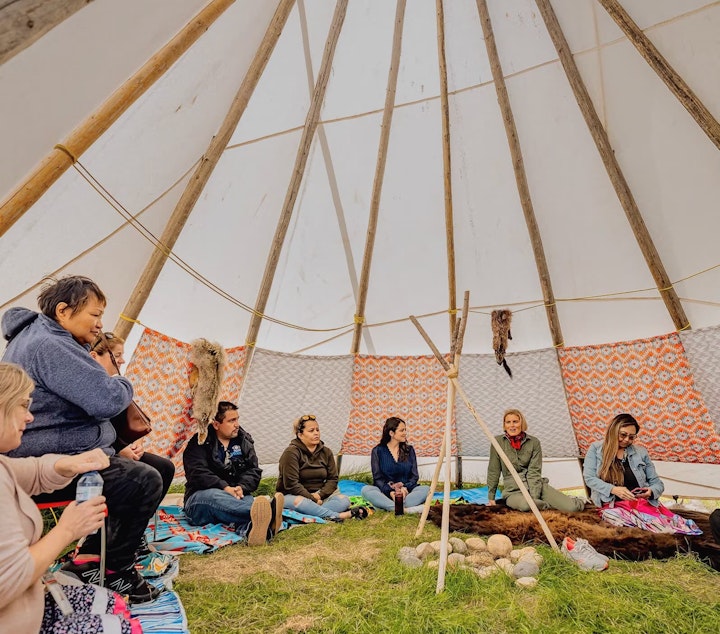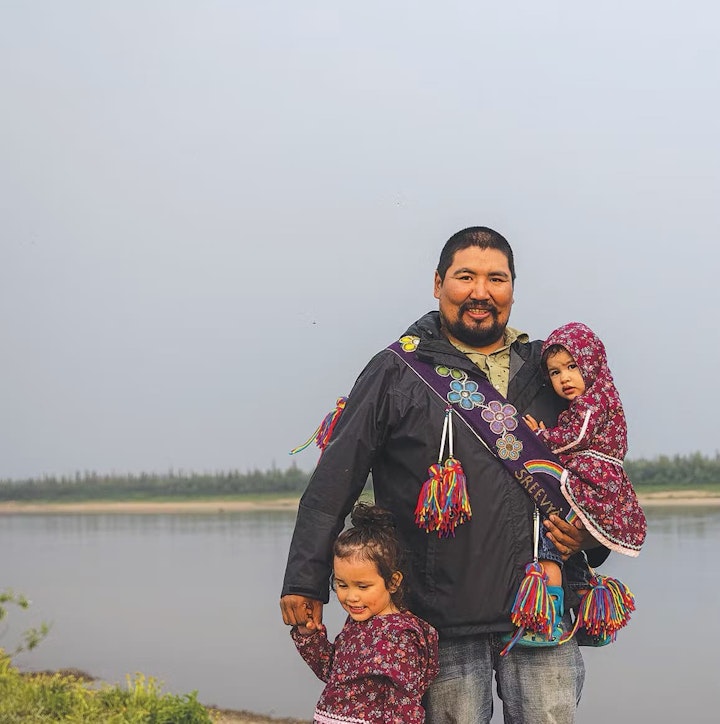Language Matters
Family Well-being
The Early Years program in Maskwacis supports kids as they get ready to begin school, through the revitalization of the Cree language. Rebecca LaRiviere, former Early Years team member, and early childhood educator talks about supporting children’s emerging communication skills, confidence, and sense of cultural belonging.
The Early Years program in Maskwacis supports kids as they get ready to begin school, through the revitalization of the Cree language. Rebecca LaRiviere, former Early Years team member, and early childhood educator talks about supporting children’s emerging communication skills, confidence, and sense of cultural belonging.
“I was taught that we never lost our language, the language has just been sleeping.”
— Rebecca LaRiviere
Language skills are a vital aspect of children’s early learning, allowing them to successfully interact and connect with others, develop social skills, and prepare to enter school. That is why the Early Years program puts so much time and thought into building language skills—especially traditional language skills—right from the start.
“Teaching letters and numbers and colours and concepts—those are really important things. But what I can do to help prepare children for school is making sure they have good receptive and productive language so that they can have a good social experience in school,” Rebecca Lariviere says.
Learning the Cree language, which is spoken in Maskwacis, boosts a child’s inner strength, Rebecca notes. In order to support the revitalization of traditional language and culture as widely as possible, the Maskwacis Early Years Toolbox is available online and also features Cree language recordings of community Elders.
For many Early Years staff, playing a positive role in early childhood development is a personal mission. They believe that promoting traditional parenting and emphasising the importance of using the Cree language helps instil a sense of identity, by showing kids who they really are. And it starts early: when moms can introduce the Cree language during pregnancy, their babies will internalize the sounds of the language as their brains develop prenatally. Rebecca says, “If singing the Cree syllabic song is the one tool that you can provide to families, or do with the child, you are already exposing them to pieces of the entire language.”
Getting ready for preschool
When children in the Early Years program in Maskwacis turn two years old, they enter a new phase. The focus moves from regular home visits to preparing for preschool. The Early Years Toolbox extends to include children aged 24 to 48 months, and workshops are offered on topics such as daily routines and the transition to leaving a child at preschool without their parents.
Rebecca and the local team also developed an eight-week course called Get Ready for Preschool to support families through this transition. Teaching the Cree language is a central component of the course. For further inspiration, everything in the Early Years building—the tables, the chairs, doors, and playroom furniture—is labelled in Cree. A day may start with smudging and circle time, followed by a song like “Old Macdonald Had a Farm” sung in Cree (a version written by Brian MacDonald). To maximize fun and engagement, the staff even use puppets that sing along.
Reclaiming traditional teachings
Rebecca makes a point of educating people whenever possible about the link between language and children’s brain development at every opportunity. If she sees a caregiver speaking casually in the Cree language or making jokes in Cree with a friend, she’ll highlight that strength and say, “These are things you can talk about with your child. You can take it a little further by making it intentional.
“I say to families, ‘Traditionally, this is how parenting looked, here’s how that got disrupted, and here’s how you can reclaim it for yourself again’,” Rebecca says. “This is yours. These are your teachings. You are capable of this.””



